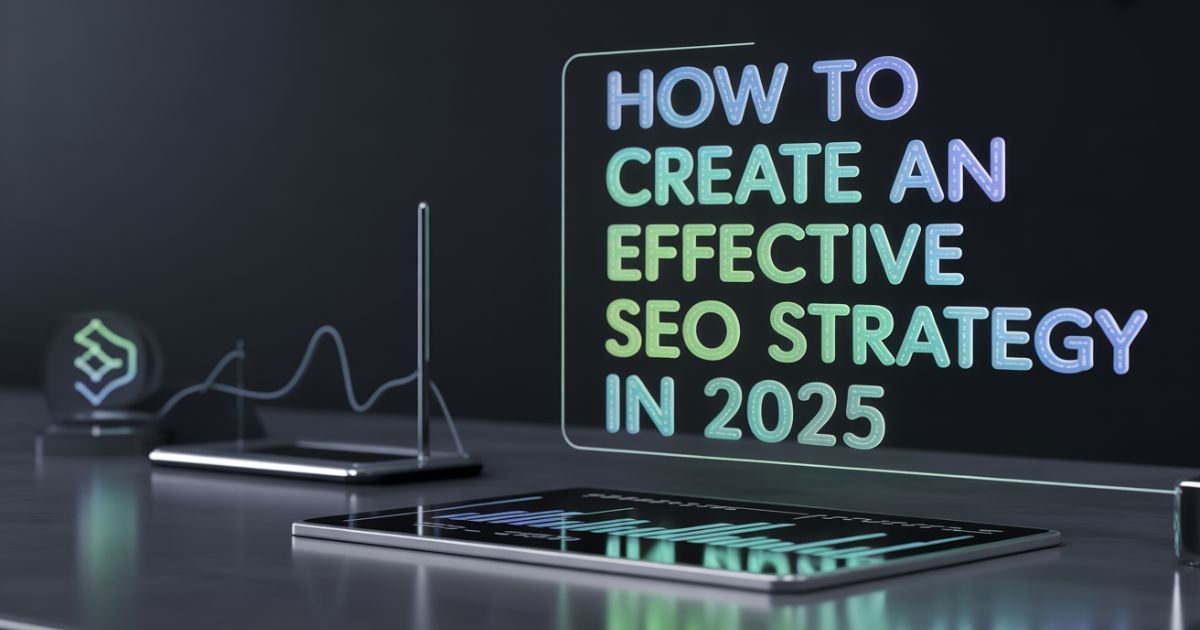
Man, search engines are wildin’ out lately. If you’re serious about cooking up an SEO game plan for 2025, you’ve gotta keep up with tech that is sprinting, users are acting all unpredictable, and Google’s algorithm? Good luck, it changes more than your ex’s moods. AI’s running the show now, tossing out zero-click answers and those weird, trippy search generative thingies. If you’re still clinging to old-school SEO hacks, you’re already toast. The new playbook? Build cornerstone content, link up those content clusters, and seriously dial in on what people want when they search. It’s not just about snagging that top spot anymore. You’ve gotta protect your turf, look legit, and make folks trust you even as AI keeps tossing curveballs. Welcome to the chaos.
1. SEO in 2025: The Game’s Changed, Buddy
Man, SEO in 2025? It bears almost no resemblance to just a few years ago. Google has gone all-in on this SGE; that is, you enter your query, and boom, right on the search page, there is your response. No ten more blue links “click here for more. Are you still cranking out those half-baked, keyword-ridden blog entries? Yes, you might just as well be shouting into a black hole. Nobody is paying attention.
It’s all about being genuinely useful now. Google wants authority pages big, beefy, actually-helpful stuff that gets what people are searching for (not just what they’re typing). They’re obsessed with things like E-E-A-T (Experience, Expertise, Authoritativeness, Trustworthiness), structured data, and semantic search. If you’re not giving real value, you’re toast.
Those who get it? Not only are they chasing trends or putting out garbage for quick clicks, rather they are also producing evergreen content that keeps paying off. Sorry, but the train has departed if you are still stuck in 2018 SEO.
2. How AI and Machine Learning Are Running the SEO Show Now
Man, AI and machine learning didn’t just shake things up in SEO—they flipped the whole table. Algorithms these days are nosy as heck, picking apart context, figuring out what’s relevant, and even creeping on user behavior to decide who gets that sweet spot in the rankings. Fast forward to 2025, and you can’t just stuff in keywords and pray. You gotta build content that answers real questions, slides in those NLP-friendly phrases, and sounds like a human talking, not a robot reading off a script.
And don’t even get me started on voice search. People are barking questions at their phones, and AI’s the one making sense of the chaos. Predictive analytics? Yep, that’s AI too. Personalizing content? You guessed it. If you’re not bending your SEO game around AI’s whims, you’re already behind. Time to adapt or get left in the digital dust.
3. Why Keyword Research Isn’t Dead—It’s Just Gotten Weirder
Okay, so keywords? Still a big deal. But it’s not about just piling up the words everyone’s searching for anymore. These days, 2025, baby—it’s all about figuring out why the heck people are typing what they’re typing. You’ve got long-tail stuff, weirdly specific questions, people talking to their phones like they’re chatting to a friend.
Chasing those massive, flashy keywords? Kinda old school. Smart sites are building these whole topic universes—think clusters, pillar pages, the works—so they’re not missing a single angle. Keyword tools? They’ve gotten all fancy, shoving AI into the mix to sniff out what people *actually* mean, not just what they type. Honestly, it’s not just a word salad game—it’s about actually getting what people are looking for. Welcome to the future, my friends.
4. Crafting Your Pillars & Clusters (Yeah, It Still Works)
Look, you cannot just throw random blog posts at your website and expect Google to notice if you are going for top rankings come 2025. Nah, you must use intellectual cornerstones. View it like this: Your “pillar” is one massive, muscular guide. After that, you create several more focused posts all linked back to that primary page. It resembles constructing your little content universe.
Picture it: you drop a monster article called “SEO Strategy 2025,” and then you’ve got all these satellites—stuff like “AI in SEO,” “Local SEO Trends,” “Keyword Clustering for Dummies,” whatever—each one linking back to the mothership. Not only does this make your site way easier to navigate (your readers will thank you), but Google eats it up. Internal links? Authority? Topical depth? Check, check, and check.
Bottom line: don’t just wing it with scattered posts. Build those clusters, flex your expertise, and watch your search visibility go from “meh” to “whoa.”
5. Search Generative Experience (SGE) and Zero-Click Results
Google’s SGE is flipping search on its head. People aren’t even bothering to click anymore—they just grab the answer straight off the results page and bounce. Wild times. If you’re a business, you gotta get your act together for this whole “answer engine optimization” thing. Cut the fluff. Give people answers that are sharp, easy to get, and make you seem like you’ve got a clue.
Toss in a couple of FAQs, slap on that schema sauce, do whatever you gotta do to catch Google’s creepy little crawler’s eye. Sure, zero-click searches might tank your site visits, but hey, if your name keeps popping up in those fancy SGE snippets, people start to remember you. Long game, my friend. Brand trust doesn’t happen overnight, but this is how you get it cooking.
6. Why E-E-A-T Matters for Ranking in 2025
Look, Google’s not messing around with its E-E-A-T thing—yeah, that mouthful: Experience, Expertise, Authoritativeness, Trustworthiness. If you thought slapping an author bio or a few backlinks was enough, you’re about to get a rude awakening in 2025. They want receipts. We’re talking legit credentials, actual people behind the words, social proof out the wazoo, all that jazz. Reviews, certifications, transparency, and real user engagement? That’s the new gold standard. If your site’s just regurgitating the same old fluff, you’re toast. The folks crushing it are those dropping deep-dive guides, real case studies, and trust signals everywhere. Fake it and you’ll get buried; show up with the goods and Google will roll out the red carpet.
7. Voice Search and Conversational SEO
Let’s not kid ourselves—people (yes, even your aunt who still uses AOL) are yapping away at their phones or smart speakers like it’s the Jetsons out here. No one’s hammering out “SEO strategy tips” on a keyboard like some 2012 tech bro. They’re going, “Yo Alexa, what’s the top SEO move for 2025?” See the difference?
” So, you gotta tweak your content for real, human-sounding questions. Think less keyword-robot, more late-night DM with a friend. Stuff like Q&As, FAQs, and just using plain old natural language—way more important now. Oh, and don’t sleep on structured data. Give Google those tasty little hints so your site pops up when people are talking, not just typing. Voice is here, so you’d better make your content talk.
8. Link Building in 2025: Chasing Clout, Not Just Numbers
Backlinks? Yeah, still a big deal—no matter what the SEO doomsayers are yelling about on Twitter. But let’s get real: blasting a million sketchy directories or trading links with your cousin’s vape blog isn’t gonna cut it. You want links that mean something. Authority sites, legit digital PR moves, real partnerships—the stuff Google cares about.
Guest posts? Still gold, if you’re not writing the same recycled “10 Tips for Productivity” article. Thought leadership, real brand collabs—all that jazz. And don’t sleep on social buzz. When a heavy-hitter shouts you out or blasts your content? That’s strapping a jetpack to your online cred. No joke, clever link building is still the secret sauce for SEO domination. Just skip the spammy shortcuts unless you like living dangerously.
9. Local SEO and Mobile Optimization
Look, if you’re sleeping on local SEO in 2025, you’re handing business to your competitors. With Google being glued to this whole mobile-first thing, your Google Business Profile better be on point, your local citations need to be clean, and if you’re not sneaking in those city or neighborhood keywords, good luck showing up for any “near me” searches. Oh, and don’t forget some beefy geo-specific content. That’s how you pop up on the map—literally.
Mobile optimization? Non-negotiable. If your site’s slow, clunky, or looks like it was built in 2012, folks are bouncing before the page even loads. Doesn’t matter if you have the best stuff on earth—if people can’t get to it on their phones, your rankings are toast. Just fix it.
10. Measuring SEO Success with Advanced Analytics
Okay, here’s the deal: if you’re still just eyeballing clicks and calling it a day, you’re missing the point—big time. SEO’s not just about luring people in; it’s about what they do after they show up. Did they hang around? Buy something? Maybe they even remembered your brand instead of spacing out two seconds later. That’s the real juice. Honestly, in 2025, if you’re not obsessing over what happens after the click, you’re partying like it’s 2009. And nobody wants that.
Those fancy AI tools? Yeah, they’re not just for show. They’re digging into what people do on your site—think heatmaps, wild behavior tracking, even guessing what folks will want next.
Nobody’s obsessing over keyword rankings like it’s 2010. The big dogs are watching if their brand’s everywhere, if people leave happy, and if organic search is making money. Dashboards? Oh, they’re slicker than ever. You get all the gritty details, fast, so you can pivot before Google throws another curveball. If you’re not measuring what matters, you’re just guessing—and that’s kinda yesterday’s news.
FAQ
1. Why’s SEO still a thing in 2025?
SEO is still the secret sauce; it makes your site visible in a world where everyone searches online. With AI-driven search (SGE, GEO, AEO), strong SEO ensures you’re found instead of ignored.
2. What is the difference between pillar content and cornerstone content?
Pillar content is a broad hub linking to detailed posts, while cornerstone content is the authoritative page designed to rank for the toughest keywords. Both boost topic clusters and internal linking.
3. 2025 will see artificial intelligence affect SEO, how?
Intent-driven search has replaced old-school keyword stuffing with AI. Generative SEO (GEO) and AEO honor pertinent, linked, long-form material answering actual user queries.
4. How do I pick the best keywords for my SEO material?
Ignore pursuing major keywords; instead, concentrate on perennial themes and clusters around one idea. Your main keyword is the sun and connected subjects as orbiting planets.
5. For the cornerstones content in 2025, what are the best guidelines?
Compose 2,000+ words, maximize intent, and update frequently.
Use internal linking, case studies, and FAQs to build trust and rank as an authority page.
Conclusion
Alright, let’s cut the corporate speak. If you wanna win at SEO in 2025, forget dusting off those ancient “top 10 tips” blog posts. Google’s not falling for that anymore. You gotta get nimble, lean into AI like it’s your new BFF, and think about what people wanna see, not just what some keyword tool spits out. Seriously, E-E-A-T, SGE, voice search? If those sound like alphabet soup, you’d better brush up, ‘cause they’re not going away. The trick? Nail down what users are hunting for, keep your main content fresh and useful (none of that clickbait “ultimate guide” fluff), and stack your site with smart topic clusters.
Don’t sleep on AI tools either, yeah, everyone’s talking about ‘em, but there’s a reason. They help you move fast and stay ahead. And please, focus on real authority. Google is scarily good at identifying impostors; there are no shortcuts or cheating. Construct trust, play the long game, and you might just survive the SEO maze.. Otherwise, well, good luck out there.




